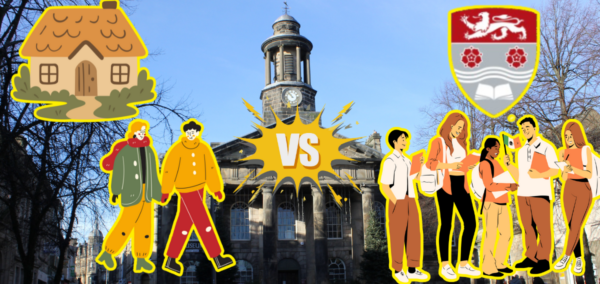
Glasgow Uni working with experts to see how ChatGPT can be used to help students study
‘ChatGPT is a new technology, which brings with it new opportunities’
Glasgow University is working with experts to see how it can use ChatGPT as a learning tool for its students.
The university has becomes the first Russell Group institution to publicly support ChatGPT as a potential future part of students’ day-to-day learning.
A spokesperson for the university told The Glasgow Tab: “ChatGPT is a new technology, which brings with it new opportunities as well as new challenges.
“We are working with experts from across the University and beyond to better understand ChatGPT’s capabilities and limitations, and how best to advise students to use it appropriately as a learning tool.”

The spokesperson also warned against the misuse of the software by students and said the university will “harness developments to detect the use of AI”.
“It remains fundamental to the integrity of academic study that whatever resources students use now and in the future, they do not present as their own work something they did not do themselves,” they added.
Last week, two of the university’s vice principals, Professor Martin Hendry and Professor Moira Fischbacher-Smith, wrote to all students to remind them of the university’s plagiarism policy.
Whilst not mentioning ChatGPT by name, they said: “We are writing to you to remind you of a core and essential principle that underpins the academic integrity of your courses and degree programmes: that all pieces of work that you submit for assessment are accepted by the University on the understanding that they are entirely your own effort.
“It is important to note that ‘inappropriate collaboration with others’ here includes inappropriate interaction with any other student, outside agency, website or software that generates assessment responses.”

Most Read
A fourth year student at Glasgow University admitted to using the software to help him with his disseration. Using the AI software to write a literature review, he told The Glasgow Tab: “I’d say it was useful. It highlighted some papers I might not have known about otherwise.”
Another fourth year student said: “I know so many people using it [ChatGPT].”
“I think it’s a useful tool when used correctly,” they argued. “It can be easy to write these things off as cheating but in terms of making it easier to find sources and summarise confusing concepts it’s great. I just don’t know what the Uni could do to stop anyone writing their whole essay using it.
“As a fourth year I’m really glad it’s just becoming popular now. I think if I was just at the start of my degree it would have been so easy to become reliant on it.”
Like many other UK universities, Glasgow University uses Turnitin as software to help detect plagiarism. The software works by comparing a student’s submission with an internet archive of academic literature to help produce a similarity report between the student’s work and other academic work previously written. A high similarity score suggests parts of the work may appear somewhere else i.e. the student has plagiarised their assessment.
However, the university warned against students using the software themselves to see if their work would get a low similarity score. The vice chancellors wrote: “A low Turnitin score does not necessarily mean plagiarism is not present and there is no ‘acceptable’ score.”
Last month, Annie Chechitelli, the chief product officer at Turnitin said the company has been working on AI-powered solutions “for several years”.
Whilst Glasgow University may be the first Russell Group to announce it is working to see how ChatGPT can be used positively by students, across the city, Glasgow Caledonian University said it is also understanding how to adopt using the software going forward.
A spokesperson from Glasgow Caledonian University told The Glasgow Tab: “Like other universities in the sector, we are also exploring positive utilisation of ChatGPT to enhance student learning in addition to detection of its misuse.”
“We would advise that ChatGPT is learning from a data set with limited knowledge up until 2021. Assessments which require knowledge from 2022 onwards will prove difficult for the application to address. Further, ChatGPT generally does not generate citations or references and, when it does, they are often inaccurate or fictitious.”
The spokesperson also added cheating is against the university’s code of conduct and could result in a student being “disciplined or even expelled”.
Related articles recommended by this author:
•‘I know so many people using it’: Meet the Glasgow students using ChatGPT for their uni work
• Glasgow students warn why using dating apps aren’t always the answer this Valentine’s Day
• Glasgow gig cut short after lead singer shots five drams of whiskey on stage

















